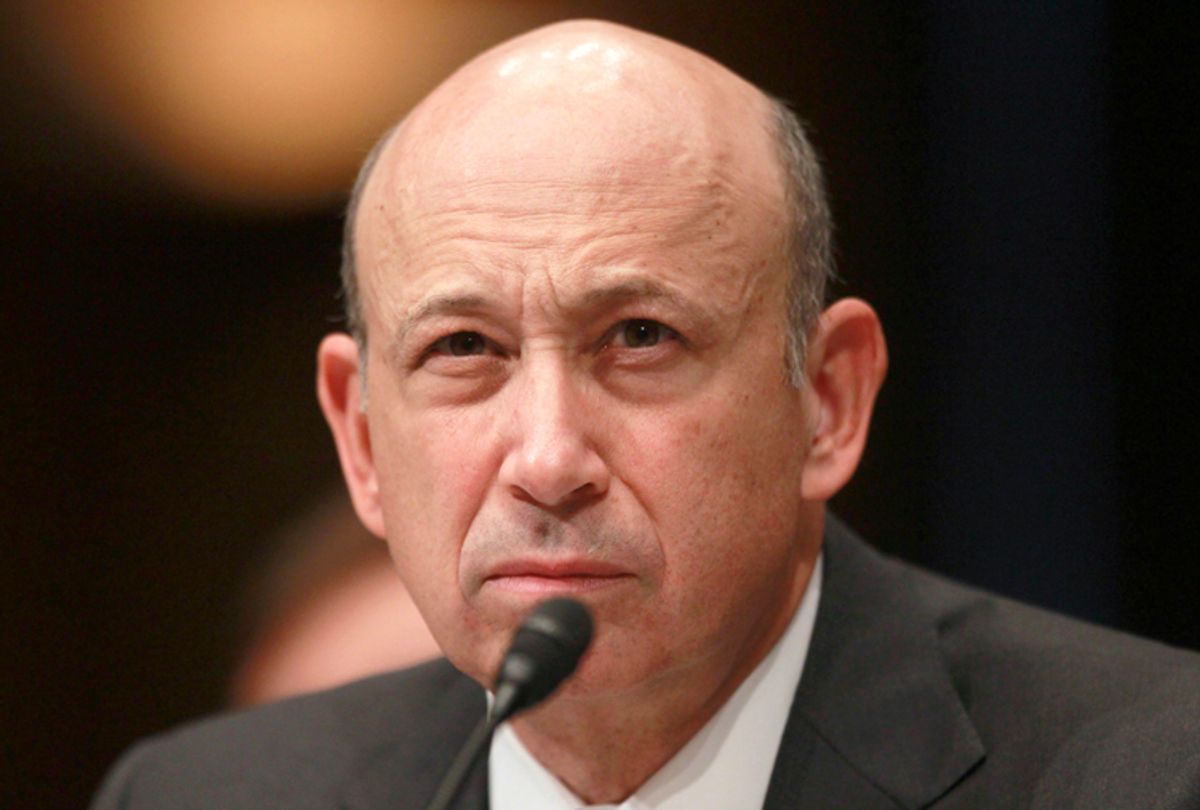The Manhattan district attorney's office has subpoenaed Goldman Sachs, reports the New York Times, seeking information relating to the investment bank's role in the financial crisis.
My initial response: Today is a good day to be Matt Taibbi.
Last June, Michael Hasting's stunning Rolling Stone article on General Stanley McChrystal ended that soldier's career. In December, one week after Jeff Goodell's blistering profile of Massey Energy CEO Don Blankenship appeared in the same magazine, the coal baron resigned.
Is it too much to hope that Matt Taibbi could complete the trifecta? Last week Rolling Stone published Taibbi's latest frontal assault on his favorite vampire squid, "The People vs. Goldman Sachs." Drawing heavily upon the 650-page report issued by Senator Carl Levin's Permanent Subcommittee on Investigations, "Wall Street and the Financial Crisis: Anatomy of a Financial Collapse," Taibbi made a powerful case for prosecuting the investment bank for fraud and its executives for perjury.
In other words, the bank needed to find suckers to buy as much of its risky inventory as possible. Goldman was like a car dealership that realized it had a whole lot full of cars with faulty brakes. Instead of announcing a recall, it surged ahead with a two-fold plan to make a fortune: first, by dumping the dangerous products on other people, and second, by taking out life insurance against the fools who bought the deadly cars.
That should be illegal. But even if it is, and even if federal prosecutors finally get off their butts and start conducting their own investigations, Goldman Sachs may prove a little tougher to take down than McChrystal or Blankenship.
And Wall Street agrees. On the same day that the Manhattan district attorney's office announced their subpoena, Brad Hintz, an analyst at Sanford C. Bernstein & Co., released a note downplaying the likelihood of criminal prosecution.
The U.S. Department of Justice, which is reviewing a Senate subcommittee report that alleged Goldman Sachs misled clients before the financial crisis, will avoid jeopardizing the fifth- largest U.S. bank by assets because it's viewed as "too big to fail," Hintz wrote in note to clients today.
"If an alleged violation is identified during a Goldman investigation, we expect a reasoned response from the Justice Department," Hintz wrote. "In a worst case environment, we would expect a 'too big to fail' bank such as Goldman to be offered a deferred-prosecution agreement, pay a significant fine and submit to a federal monitor in lieu of a criminal charge."
That's when you know you've really made it to the top of the thieving heap: When you've convinced the cops you can't be taken down without the rest of the world collapsing with you.



Shares